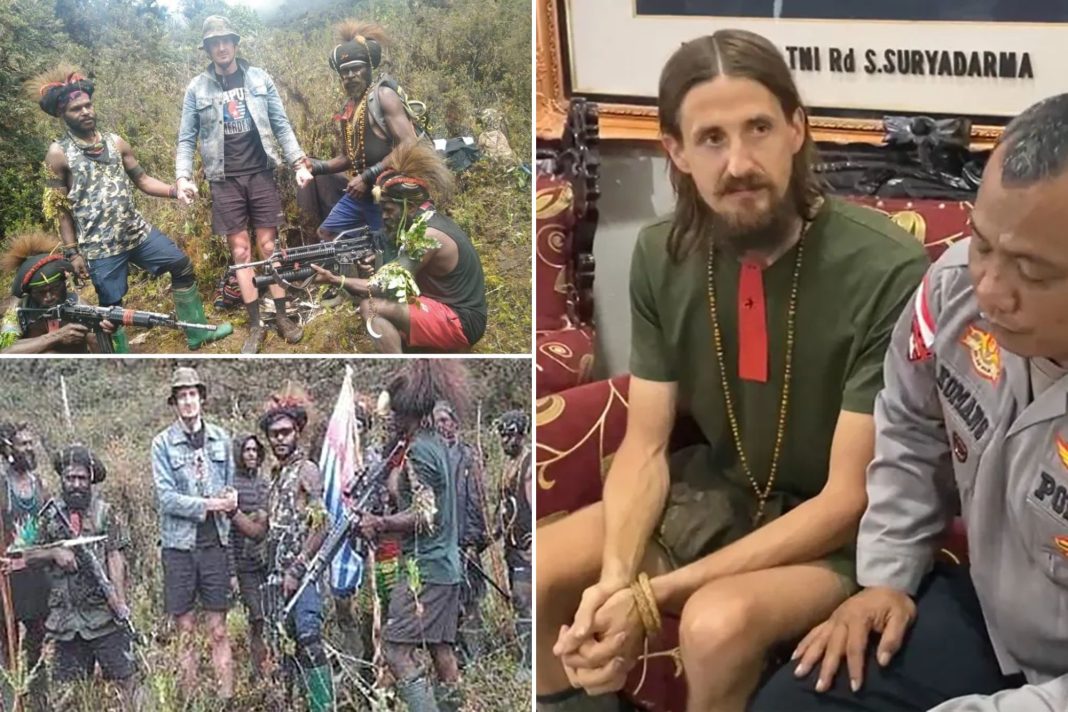In a remarkable turn of events, Phillip Mark Mehrtens, a 38-year-old pilot from Christchurch, has been freed after spending over 19 months in captivity in Papua, Indonesia. His release, confirmed by Indonesian authorities on Saturday, marks a significant development in a protracted conflict fueled by aspirations for Papuan independence.
Mehrtens was abducted on February 7, 2023, when separatist rebels from the Free Papua Movement, led by regional commander Egianus Kogoya, stormed the single-engine plane he was piloting on a small runway in Paro. This incident was part of a broader pattern of escalating violence in the region, where a low-level insurgency has simmered since Papua’s controversial incorporation into Indonesia in 1969—a process that many view as a sham orchestrated under the auspices of a United Nations-sponsored ballot.
The situation in Papua has deteriorated over the past year, resulting in significant casualties among rebels, security forces, and civilians alike. Kogoya initially made it clear that Mehrtens would not be released unless the Indonesian government acknowledged Papua’s right to sovereignty. The rebels’ desire for independence is rooted in a long history of marginalization and unmet grievances, making the conflict deeply personal and politically charged.
However, the breakthrough in negotiations came when the West Papua Liberation Army proposed terms for Mehrtens’ release, including media involvement—an indication that external pressure and public awareness could play a crucial role in resolving such conflicts. Bayu Suseno, spokesperson for the joint security force known as the Cartenz Peace Taskforce, credited the successful negotiation efforts to local church leaders and community figures who facilitated communication between the two parties.
“This is incredibly good news,” Suseno remarked, emphasizing the significance of achieving a peaceful resolution without casualties. The importance of a non-violent approach cannot be overstated, particularly in a region where military interventions have often led to tragic outcomes. For instance, just months prior to Mehrtens’ release, armed separatists attacked Indonesian troops, resulting in the deaths of at least six soldiers—a stark reminder of the volatility in the region.
New Zealand’s Foreign Minister, Winston Peters, expressed profound relief upon confirming Mehrtens’ safety. He noted that a wide array of New Zealand government agencies had been engaged in the efforts to secure the pilot’s release, working closely with Indonesian authorities throughout the 592 days of captivity. “We are pleased and relieved to confirm that Phillip Mehrtens is safe and well,” Peters stated, adding that the ordeal has taken a toll on Mehrtens’ family, who have requested privacy during this challenging time.
Peters characterized the successful negotiation as a “tricky” endeavor, highlighting the need for patience and trust-building in a high-stakes environment. He described the experience as nerve-wracking, emphasizing the delicate balance between maintaining hope and the fear of failure. The pilot’s return to his family is a poignant reminder of the human cost of such conflicts, as well as the resilience of those who advocate for peace.
As Mehrtens prepares to reunite with his family in Jakarta, the broader implications of his release resonate throughout the region. The Papuan struggle for independence remains unresolved, and while this particular chapter has concluded with a positive outcome, the underlying issues will require sustained attention and dialogue. The situation underscores the complexities of modern conflict resolution, where external mediators, community leaders, and even the media can play pivotal roles in shaping outcomes.
In the end, the story of Phillip Mark Mehrtens serves as both a cautionary tale and a beacon of hope. It highlights the importance of dialogue in conflict resolution and the necessity of addressing the root causes of unrest, not just the symptoms. As Indonesia grapples with its diverse regions and the aspirations of its people, the lessons learned from this experience may pave the way for more constructive engagements between the government and marginalized communities in Papua.

